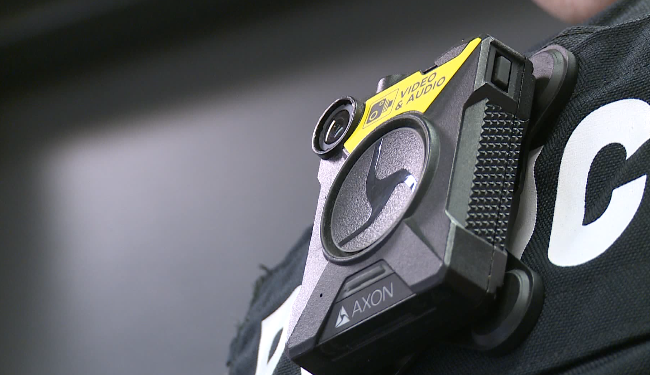Should British Columbia police be required to wear body cameras?

The debate got a new boost this week with two online petitions calling for Vancouver police and the B.C. RCMP to employ the devices garnering close to 25,000 signatures in under a week.
The initiatives come as protests over racism and the use of force by police sweep North America after George Floyd died while being arrested by a white Minneapolis, Minn., police officer.
Ben Leach created one of the petitions. The former U.K. resident has been in Vancouver for six years and says, where he’s from, all police forces wear the cameras.
“Alone they can’t solve the issues we face with police forces, but it’s a good start,” he said
“At the moment, when something happens between a police officer and a suspect, all we have to go on is the suspect’s word, the police officer’s word and any potential witnesses. This just gives another level to that evidence that can be used.”

Leach, who said he had sought to become a police officer himself before coming to Canada, argued modern police have been thrust into new roles — including mental health support — that they may not be well enough trained for.
Grand Chief Stewart Phillip of the Union of B.C. Indian Chiefs has been vocal in supporting the anti-Black racism protests and sees links between violence against Black and Indigenous peoples.
Phillip said he was generally supportive of the technology, but added that more comprehensive police reform is necessary.
“Quite frankly, I think it’s a half measure,” said Phillip.

Get daily National news
“The issue here is racism. And police agencies have allowed themselves to become steeped in racist attitudes towards people of colour, towards poor people, homeless people, and that needs to be addressed.”
Phillip further argued that even in the presence of video evidence, Crown prosecutors have shown reluctance to press charges against officers.
Police in Calgary currently wear body cameras, while Ontario’s Peel Regional Police have begun implementing the technology.
More than 80,000 people have signed a petition for Toronto police to wear body cameras, and the city’s police chief says he supports the idea.
In 2019, British Columbia developed standards for the use of body-worn cameras, but the technology has not been widely adopted.
Ron MacDonald, the director of B.C.’s civilian police watchdog, the Independent Investigations Office (IIO), says he has resisted taking a position on the technology in the past, but now favours its use.
“At this point in time, it’s my view that all officers — all front-line officers — in this country should be equipped with body cameras,” MacDonald told Global News.

“We live in a world where video is becoming more and more ubiquitous. I think we’re at a point now where the public expects it.”
MacDonald said body cameras would give oversight agencies more evidence to work with, as well as provide the crucial before-and-after context that is often missing from video shot by the public.
He said the technology would create greater trust in police forces, while at the same time shielding officers from unfounded allegations of wrongdoing.
“They also demonstrate where officers haven’t crossed the line and have followed the law and have acted with justification,” he said.
MacDonald said there would be challenges to overcome in implementing the technology, including cost and the privacy of both officers and the public.

In a statement, B.C. RCMP spokesperson Cpl. Chris Manseau said the RCMP had extensively studied the concept and supports the use of body cameras.
But he said following a 2016 feasibility study, the RCMP had decided against a force-wide implementation of cameras “until such time as available technology can meet its specific operational requirements.”
“This is a complicated discussion with contracting partners about how much funding is provided to support this initiative. Right now in most front-line or uniform policing areas, this is not a funded initiative,” said Manseau.
“This discussion is ongoing and being continuously evaluated. There are many other considerations such as privacy questions, retention time lines, and so on.”
Global News has requested comment from the Vancouver Police Department about the concept.
The VPD studied the idea in 2012 and found while the technology provides “numerous benefits”, it also came with significant storage and transcription costs, along with civil liberties concerns.
Phillip rejected cost arguments as “ludicrous.”
“Human life is priceless, human well-being. They certainly can afford to weaponize and militarize their capacity to bring grievous harm to people in terms of the equipment that they have nowadays.”
MacDonald said given the high cost of implementing the technology, the provincial and federal governments should step up to help fund a program.








Comments
Want to discuss? Please read our Commenting Policy first.